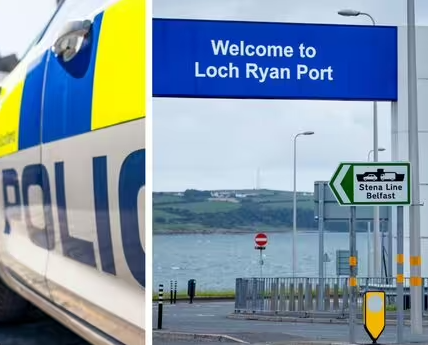Express reporter Adam Toms visited Bristol, one of the frontlines of the country’s housing crisis.
“Housing crisis” has almost become a throwaway phrase, a political buzz phrase used by those looking to slag off the other side – or sides these days – and to get one over on them. It is crucial, as the UK’s rent spiral and supply of homes seems as stagnant as ever, to see how this nationwide situation is impacting individual lives. This was made clear to me during a visit to the Downs in Bristol – where private rents increased to an average of £1,741 in October 2024, an annual increase of 3.1% when compared to October 2023 – whereby I spoke to people who have taken to living in caravans and vans.
One of them, Craig Collier, 44, a software engineer emphasised that if I spoke to 100 people living his lifestyle, each one would have a completely different story. And it’s true. One person told me he could not afford to live any other way and support his children how he would like to, another said they had been issued a Section 21 notice after renting the same place for 16 years, and a gentleman said he was living in a vehicle after being “kicked out” by his girlfriend.

People have taken to living on the Downs in Bristol. (Image: Rowan Griffiths / Daily Express)
A different person said they preferred living a “nomadic” lifestyle, and living in a room in a shared house was not great for their mental health. Overall, there was a sense that the current system is unfair, and some were reluctant to pay into it.
Bristol is one of many cities in the UK that have changed more or less beyond the recognition of people who have lived there for decades.
Inhabitants with smaller incomes, many of whom had been living in the same area for generations, have been displaced by newcomers, more able to sustain themselves in pricey properties in gentrified streets.
One Bristolian van dweller told me that this is down to the city’s location, as businesses with well-paid employees were attracted to its position near vital roads and an easy rail connection to London.
Students have also moved in in their droves.
This has resulted in locals feeling like they have been pushed out, and that the city is not tailored to their needs anymore.
One woman told me: “Where do we live? Who keeps the city running on low paid work? It can’t just be for people who’ve got money.”
The situation has also led to community tensions, as local activists want to see local parking bylaws enforced, and the vehicles moved away.
But it is not that simple.
Housing waiting lists are regional, and so, if they go somewhere else, they will be told to go back where they come from.
Plus, people are living in vans not just on the Downs, but across the city.
Those on the green space say they do not want to trouble people by parking outside their houses.

Craig Collier is living in a van on the Downs. (Image: Rowan Griffiths)
They added that they feel victimised and vulnerable, as they face accusations of anti-social behaviour, which they refute.
Locals, it has been alleged, drive past vans beeping their horns, film van dwellers through their windows and even launch fireworks at their vehicles.
At the same time, a member of the Protect the Downs group, Sharon Scott, highlighted that some people who live in the area are genuinely scared, including some elderly residents who are reluctant to come outside, and women who avoid going to the Downs.
The council says it has no evidence of vehicle dwellers being linked with allegations, such as “possible prostitution”, locals being verbally and physically abused and women being flashed at.
This is apart from “isolated” reports, such as a child throwing sticks at someone.
The situation is national, and not contained to Bristol.
As well as people going without a safe and secure place to call home, the housing crisis creates breeding grounds for sometimes vitriolic social conflict, which are springing up across the UK.
At a time of ample disputes in our communities over countless other things, we don’t need more.
Mr Collier emphasised to me that people are in an “echo chamber” – in this case a Facebook group – and need to come together, face to face.
In any walk of life, things are better explained this way.

Angela Rayner’s plan for more affordable homes needs to work. (Image: Getty)
On a community scale, this would also establish that the people involved in local disputes are real, with genuine back stories.
Councillor Barry Parsons, the Chair of Bristol City Council’s housing committee said whether this phenomenon becomes more prevalent in the future depends on national housing policy, and whether it is actually providing people with the homes that they need.
Angela Rayner, is aiming to deliver around 300,000 social and affordable homes through a new £39billion Social and Affordable Homes Programme, with at least 60% for social rent.
Perhaps the most striking moment of my visit was talking to Ali Edgley, 68, who is renting a “very cheap” property in Dorset at the moment.
She however is waiting for the £525 per month cost of her accomodation to increase – possibly as high as £1,400, she believes – or an eviction notice to get her “out of the way”.
The former taxi driver and careworker has futureproofed herself by buying a van, adding that, for many, the lifestyle is a more secure “step up”.
Ms Rayner’s plan is one of the most crucial on this government’s books, and, for the good of the nation, it needs to instigate real change.
That’s what Labour promised last year, after all, and people are already impatient for it.


